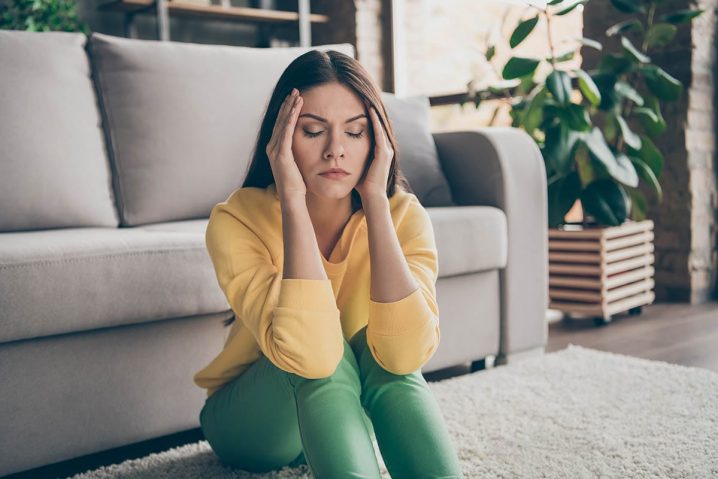There are many ways to consume marijuana; it is perhaps one of the most versatile drugs out there. Brownies, gummies, butter, concentrates, and tinctures are just a few of the more popular forms of cannabis. However, there’s a new way to take cannabis: THC pills. As marijuana producers and users look for more discreet ways to use marijuana, cannabis pills are rising to the occasion as the most popular option. Read this and then assess your situation to find out if a marijuana addiction treatment program can help you or a loved one.
What Are THC Pills?
THC pills contain either liquid concentrate or ground flowers from the marijuana plant in pill form. THC is short for tetrahydrocannabinol and is the psychoactive ingredient in marijuana–not to be confused with CBD (cannabidiol), which doesn’t produce the euphoric high associated with marijuana use. Once you ingest it, THC creates the “high” marijuana is famous for. Compared to smoking marijuana, THC pills or cannabis pills hit the system differently. It takes the pills an average of 30 minutes to dissolve once ingested, so one could say this is another form of edibles. It takes our bodies about two hours to absorb the THC and start to notice the effects of taking such pills. However, the effects of THC last depending on dosage, your system, and a myriad of different factors.
Are THC Pills Dangerous?
Many people take cannabis pills to manage chronic pain. However, depending on the levels of THC, cannabis pills can be dangerous. Higher concentrations of cannabis can cause side effects including:
- Schizophrenic episodes
- Impaired motor skills
- A decrease in cognition
Mixing THC with other substances and cannabis products may result in greater impairment and intense symptoms. For example, mixing marijuana and alcohol may increase THC levels in the blood, increasing the risk of overdose. In over 30 states, marijuana is legal, and THC pills are available at most marijuana dispensaries for recreational use. However, in states where recreational marijuana remains illegal, it’s unlikely to find cannabis capsules through a prescription. You can still find medical marijuana in states that have the approval if your doctor believes the medicinal benefits of the marijuana plant will help you. There is one cannabis pill that’s FDA-approved for medical purposes only; Marinol (dronabinol) was approved in 1985 to treat weight loss in people with aids. It’s also used to treat chemotherapy-induced nausea and vomiting.
The Risks of Taking Cannabis Pills
Since THC pills are still relatively new, there’s not enough evidence around their long-term effects on our health. It is known that marijuana use can cause brain damage and cognitive impairment, particularly in teenagers, but we don’t know if cannabis pills can increase these risks. Furthermore, there’s the issue of addiction. While physical addiction is unlikely to occur, estimates believe one out of every 10 marijuana users will develop a psychological dependence. Psychological dependence occurs when someone needs a drug to feel good and control symptoms such as stress, anxiety, or depression. Using drugs as a coping mechanism can result in a long-term addiction that will be difficult to overcome without treatment. In addition, many first-time marijuana users will continue to experiment with other drugs such as cocaine and heroin. They’re also more likely to experiment with other prescription drugs.
What Do THC Pills Look Like?
For parents, THC pills represent another risk: not knowing if their child is using marijuana. Because cannabis pills don’t have any names or marks on them, parents can mistake them for regular painkillers. Here’s how to differentiate cannabis pills:
- Look for transparent capsules with a gold-like liquid inside. These are likely tincture-based cannabis pills.
- Another popular option is green or clear capsules filled with ground-up marijuana leaves. These might sometimes have a green powder; that’s just powdered marijuana leaves.
Marijuana Addiction Treatment
While rare, marijuana use disorder happens. The latest data suggest that at least 30% of marijuana users have some degree of addiction. Those who start using marijuana before the age of 18 are four to seven times more likely to develop marijuana addiction than those who start using it as adults. Quitting marijuana isn’t difficult, as most withdrawal symptoms are not life-threatening. However, some people need more help than others to overcome their addiction. In extreme cases, they may need to go to a rehabilitation facility and try:
- Intensive outpatient program: a semi-flexible rehab program encompassing at least 15-20 hours of treatment per week. Patients can come and go from the rehab center for treatment and go home every night.
- Outpatient program: a flexible rehab program with at least nine hours of addiction treatment per week. Most patients have already completed a more intense schedule and are transitioning to sobriety.
- Aftercare programs: after completing rehab, aftercare programs offer ongoing support and treatment as patients reenter society. Not everyone chooses this program, but it can be highly beneficial.
How to Find Help at Lighthouse Recovery Institute
If you or someone you know struggles with marijuana addiction, try talking to an addiction specialist. Call us today at 866.308.2090 for a complimentary consultation. Our caring therapists can help you figure out what kind of treatment you need or refer you to a marijuana-recovery support group near you.





